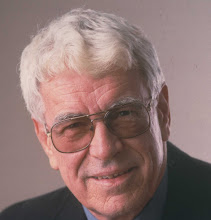Laws are made, says the old maxim, by those who have the power to enforce them.
The first laws, says Captain Charles Johnson, were probably made by a caveman who attacked the caveman on the other side of the river, “took everything he had, and made the rule that the river belonged to him and his family, of course. So there came government, and anybody from the other side of the river who did the same thing was a criminal committing an act of piracy.”
Johnson wonders who was the greatest pirate of the Renaissance. Was it Philip of Spain, who looted the Americas? Or Elizabeth I of England, “who sent out fleets to loot the looters? Or Drake, the greatest looter of them all?”
Captain Johnson is the central figure in Pirate's Passage, the deliciously subversive book by South Shore writer William Gilkerson which won the 2006 Governor-General's Award for Children's Literature. Spectacularly-successful thieves, Johnson says, become monarchs, emperors and governments. Less successful thieves become criminals. If they're sailors, they're called pirates. The definitions come from codes of law and the history books, which are written by the winners.
If I had been told all this when I was a boy, it would have saved me a lot of later confusion. But I don't know many children's books as forthright and provocative as Pirate's Passage.
The novel begins when Captain Johnson's little yawl surfs into the village of Grey Rocks in a November storm in 1952. He stays the winter at the Admiral Anson Inn, where he befriends Jim, the 12-year-old son of the widowed innkeeper. Are there echoes of Treasure Island here? Oh, yes.
Jim is writing a school essay about pirates. Captain Johnson offers to help – and not only with schoolwork. The historic inn is in decline, and the village dictator, who heads a local clan named Moehner (pronounced “meaner”), is manipulating police, firemen and health inspectors, squeezing Jim's mother to sell. Captain Johnson applies his strategic intelligence to thwarting the Moehners.
Meanwhile, Jim gets an astonishing view of piracy. In 1724, a Captain Charles Johnson published an authoritative General History of the Robberies and Murders of the most notorious Pyrates – and the Captain Johnson of 1952 eerily echoes his namesake. He sometimes implies that he is becoming younger again, raising the tantalizing possibility that he may indeed be the same man, having found some means to wax and wane in age.
The captain has a remarkable capacity to inject Jim straight into the scenes he describes. Again and again, Jim finds himself reasoning like a pirate and planning like a pirate – and inhabiting the subsequent action so vividly that he actually seems to live it. The experience, Jim says, “rattled my notions of reality,” as it is clearly meant to do.
Indeed, the point of these intense conversations is the captain's insistence that Jim discard conventional thinking, and learn to see the world clearly and accurately. Once, for instance, Jim comments that the merchant sailor's condition in the 18th century seems unfair, and should be changed.
“Changed?” the captain retorts. “What's to change? The way of the world? Don't overtax your brains with how things should be; you're going to need all the brain power you've got just trying to figure out how things actually are.”
According to Johnson, “the Brotherhood” of freebooters created the world's first true democracy at a time when most Europeans were utter pawns of absolute monarchs. The captain quotes with approval Captain Samuel Bellamy's denunciation of those who live within the laws established by the wealthy as “ a parcel of hen-hearted numskulls.” The wealthy, he says, “vilify us, the scoundrels do, when there is only this difference, they rob the poor under the cover of law, forsooth, and we plunder the rich under the protection of our own courage. Had you not better make then one of us, than sneak after these villains for employment?"
Good question. And if you think piracy and slavery are behind us, says the captain, think again. Starting with the Moehners and ending with a crew of armed thugs in a motorboat off Boston, Jim meets all manner of contemporary pirates. In the end, says the captain, there's no such thing as “the pirates.” There's just “them as lives in the seams and spaces between the rules...in governments, churches, academies, businesses, tennis clubs, and pub society – pirates ready to come out and ransack from the spaces between the spaces.”
The pirates are among us, and our best defenses are speed, courage and surprise. Pirate's Passage a glorious romp and a vivid historical tale – and a foundation text in the political philosophy of survival. No doubt we have met our pirates already. Perhaps we are pirates ourselves, forsooth, in our moments of courage and freedom.
-- 30 --
Subscribe to:
Post Comments (Atom)

1 comment:
I would just like to congratulate you on your masterpiece, "The Pirates, Then and Always". I can see myself referring to it years to come. Probably pass it down to my kids.
Truly beautiful
Post a Comment